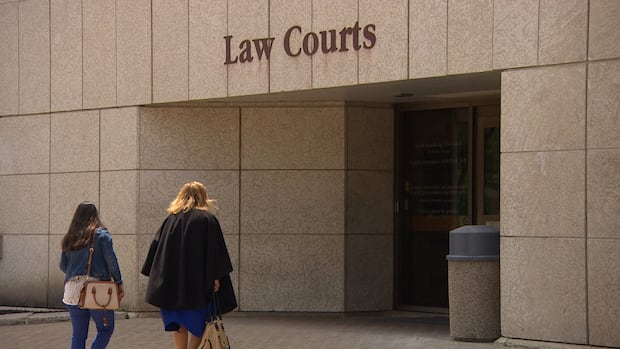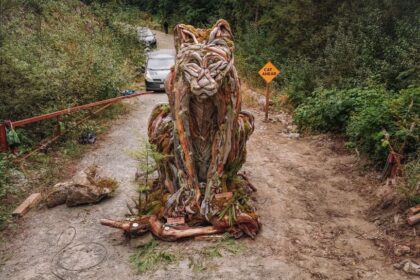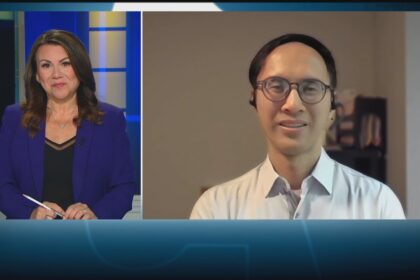IndigenousAdvocates and Gladue report writers are concerned that there is no process to verify claims to Indigenous identity when people in the criminal justice system ask judges for Gladue consideration in sentencing. Law professor says it’s perceived as ‘a ‘get-out-of-jail-free card’ type thing’Candace Maracle · CBC News · Posted: Oct 27, 2025 4:00 AM EDT | Last Updated: 3 hours agoListen to this articleEstimated 5 minutesThe Manitoba Law Courts Building in Winnipeg. Gladue reports tell a judge about an Indigenous person’s history and the ways they are impacted by colonialism. (Ryan Cheale/CBC)Advocates and Gladue report writers are concerned that there is no process to verify claims to Indigenous identity when people in the criminal justice system ask judges for Gladue consideration in sentencing.Tamara (Baldhead) Pearl, an assistant professor at University of Alberta’s Faculty of Law, said false Indigenous identity claims can waste resources and pervert the intent of Gladue.“It becomes this perceived benefit that it’s somehow a ‘race-based discount’ … a term that’s been thrown around in the last few years is a ‘get-out-of-jail-free card’ type thing and it’s absolutely not,” she said.The Supreme Court of Canada’s 1999 Gladue ruling says sentencing judges must take into consideration the influence of things such as residential schools, the Sixties Scoop or child welfare system on Indigenous offenders. Similar to pre-sentence reports, Gladue reports tell a judge about an Indigenous person’s history and the ways they are impacted by colonialism.But Pearl also said self-identifying as Indigenous may be all some people can do, due to the impacts of colonization and losing their connection to community.Tamara (Baldhead) Pearl is an assistant professor at University of Alberta’s Faculty of Law. (Submitted by Tamara (Baldhead) Pearl)”Courts are very reluctant to be the gatekeeper of who is Indigenous,” she said, but in a recent decision an Alberta judge proposed a test for those who self-identify: that those who claim to be Indigenous show they have acceptance within an Indigenous community. “It is becoming increasingly clear we must no longer sacrifice the integrity of Indigenous identity on the altar of over-inclusion,” the judge wrote. Causing harmDarryl Leroux, an associate professor in political studies at the University of Ottawa, researches the phenomenon of the false claims to Indigenous identity. He began tracking Indigenous identity claims in court cases almost a decade ago and said he found 185 with false or non-verified claims to identity; 35 featured Gladue reports.Leroux said his assessments are based on judges’ discussions about Gladue reports and to what organization an individual belongs.Darryl Leroux runs a website called Raceshifting where he recently published his findings on false claims to Indigenous identity in court cases. (Submitted by Darryl Leroux)He said more judges are now questioning these claims. In one 2020 court decision, a judge said they were unable to apply Gladue factors because the accused’s mother’s Métis identity was tied to an organization offering paid memberships. “Any of these types of false claims by white folks is harming Indigenous people in various ways, but it definitely makes things more complex for judges,” Leroux said.”It definitely is going to harm those who have experiences and can connect their experiences of historical forms of violence … and also contemporary forms to their conviction.”‘Identity is really complicated’Jonathan Rudin, special projects director for Aboriginal Legal Services in Toronto, said the organization has written thousands of Gladue reports for people across Ontario since 2001.Rudin said not everyone before the courts falsely claims Indigenous identity deliberately; sometimes people are mistaken. “Identity is really complicated and a lot of people don’t know much about their identity,” he said.”On one level, disconnection is a real consequence of colonialism.” Jonathan Rudin is special projects director of Aboriginal Legal Services in Toronto. (Submitted by Jonathan Rudin)Sometimes they write “no Gladue report” letters to the court to say that they cannot confirm any aspect of a defendant’s Indigenous identity and therefore cannot speak to their experience as an Indigenous person and how that would relate to sentencing.”But we don’t say in our letters that someone is or is not Indigenous; that’s not a role we want to play,” Rudin said. “If people are connected to their own community that makes it a lot easier.”Rudin pointed to a case in Ontario in 2015 where the defendant claimed to be with the “Oneida Band of the Blackfoot Tribe.”“I have never heard of this,” the judge wrote in the sentencing decision, adding that the Oneida Nation is part of the Haudenosaunee Confederacy and the Blackfoot Nation is located traditionally in parts of what’s now the Prairie provinces. He wrote it was his view that Gladue did not apply.“The decision to not engage the [Gladue] analysis, in the face of an identification, is tricky, because displacement is a key feature of Gladue, and who am I to serve any kind of gate-keeping function in determining who is Aboriginal and who is not,” the decision said. “The problem here is, no part of the ‘picture’ has been painted for me, other than to be told he may have some First Nation blood; which is not even all that apparent, given the confusing description of his tribal affiliation.”Rudin said it’s not a judge’s job to determine a person’s Indigeneity during sentencing but that people need to do the work when they’re writing Gladue reports and that Indigenous people need to make these determinations.ABOUT THE AUTHORCandace Maracle is Kanien’kehá:ka, Wolf Clan from Tyendinaga Mohawk Territory. She has a master’s degree in journalism from Toronto Metropolitan University. Her latest short film, “Tsi ní:yoht yonkwayentá:’on ne óhses” (How We Got Maple Syrup) is completely in the Kanien’kéha language.
Wednesday, 4 Feb 2026
Canada – The Illusion
Search
Have an existing account?
Sign In
© 2022 Foxiz News Network. Ruby Design Company. All Rights Reserved.
You May also Like
- More News:
- history
- Standing Bear Network
- John Gonzalez
- ᐊᔭᐦᑊ ayahp — It happened
- Creation
- Beneath the Water
- Olympic gold medal
- Jim Thorpe
- type O blood
- the bringer of life
- Raven
- Wás’agi
- NoiseCat
- 'Sugarcane'
- The rivers still sing
- ᑲᓂᐸᐏᐟ ᒪᐢᑿ
- ᐅᑳᐤ okâw — We remember
- ᐊᓂᓈᐯᐃᐧᐣ aninâpêwin — Truth
- This is what it means to be human.
- Nokoma











